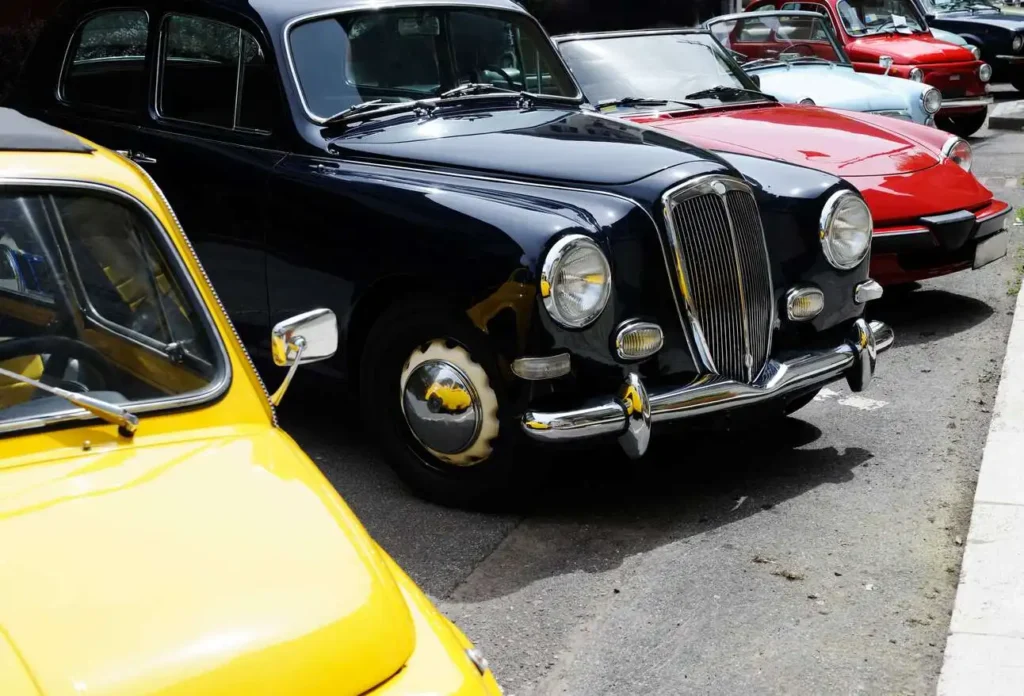When most people think of investments, stocks, bonds, or real estate typically come to mind. However, for those with a passion for history, craftsmanship, and the thrill of driving, vintage cars have proven to be one of the most rewarding and unique investment opportunities. In this blog post, we’ll explore why vintage cars are more than just a hobby—they’re the ultimate investment.
1. A Tangible Asset with a Growing Value
Unlike stocks or bonds, vintage cars are tangible assets that you can see, touch, and even drive. Their value often increases over time, especially when well-maintained or restored. The market for classic cars has seen consistent growth over the past several decades, with certain makes and models increasing in value by hundreds of thousands or even millions of dollars.
Why the Value Increases:
-
Rarity: Many classic cars were produced in limited numbers, and as time goes on, fewer of them remain in good condition. This rarity drives up demand and, in turn, value.
-
Historical Significance: Vintage cars often carry significant historical importance, whether because of the era they represent, the brand’s legacy, or their role in automotive history. Collectors and investors alike are willing to pay a premium for vehicles with such a story.
-
Restoration: A well-restored vintage car can increase in value, particularly if it’s a high-demand model. Cars that are properly restored—preserving their original specs and authenticity—are often much more valuable than those that are simply maintained.
2. Demand for Classic Cars Continues to Grow
The classic car market is not just a niche market for car enthusiasts. It’s an expanding global industry. As more and more people discover the joy of vintage vehicles, demand for these cars continues to grow. Moreover, the collector car market has become more accessible thanks to online auction platforms, bringing together sellers and buyers from all over the world.
Factors Driving Demand:
-
Increased Popularity of Classic Car Auctions: Auction houses like RM Sotheby’s and Barrett-Jackson have helped make vintage cars a mainstream investment vehicle. High-profile auctions bring attention to rare and highly sought-after cars, often setting world records for the most expensive cars sold.
-
The Rise of Millennial Collectors: A new generation of car enthusiasts—often millennials—is beginning to appreciate the craftsmanship and history behind vintage cars. This generation has an appreciation for cars that goes beyond mere transportation, valuing style, performance, and uniqueness.
-
Cultural Resurgence: Classic cars have always been icons in pop culture, from movies and TV shows to music videos. As vintage cars continue to appear in the public eye, they gain an almost mythical status, further driving demand.
3. Diversification for Your Investment Portfolio
Investing in classic cars offers a great way to diversify your portfolio. Stocks and bonds are often subject to market volatility, while vintage cars can be more insulated from global economic shifts. The classic car market doesn’t always follow the same patterns as traditional financial markets, and many collectors have seen their cars appreciate in value even during times of economic downturn.
Why It Works as Diversification:
-
Low Correlation with Financial Markets: The value of a vintage car isn’t usually tied directly to stock market trends. This makes it a great hedge against economic instability or volatility in the broader market.
-
Long-Term Capital Gains: With patience and proper care, vintage cars can appreciate significantly over time. While short-term gains are possible, classic cars tend to be long-term investments that can provide substantial returns over decades.
-
Global Market: The global nature of the classic car market means that economic trends in one country may not impact the car’s value as much. If a particular model gains popularity internationally, it can increase in value regardless of regional economic conditions.
4. Vintage Cars are Fun to Own
Perhaps one of the most compelling reasons to invest in a vintage car is the pure enjoyment of ownership. Unlike traditional investments, which can be hard to measure or experience, classic cars offer tangible joy. You can drive them, show them off, and even participate in vintage car events and shows.
What Makes Vintage Cars So Enjoyable:
-
The Joy of Driving: There’s nothing quite like the feeling of driving a car from a bygone era, especially one that’s been meticulously restored. The connection you feel to automotive history is unmatched by newer vehicles, which are often more about technology than pure driving pleasure.
-
Community of Enthusiasts: Owning a vintage car connects you to a passionate, global community of car enthusiasts. Whether you’re participating in a local car meet or attending an international rally, there’s a sense of camaraderie and shared passion for preserving these iconic vehicles.
-
Car Shows and Events: Classic car shows and auctions offer opportunities to showcase your investment while enjoying a social experience. Many events also offer opportunities to learn from other collectors and grow your knowledge of vintage cars.
5. The Emotional Appeal of Classic Cars
While many investments are purely financial, classic cars carry emotional value as well. They represent nostalgia, history, and craftsmanship. For car enthusiasts, investing in a vintage car is about more than just numbers; it’s about preserving an important piece of history. The emotional appeal of vintage cars adds a layer of sentimental value that isn’t often found in other types of investments.
Emotional Benefits of Owning a Vintage Car:
-
Sense of Achievement: Restoring or acquiring a rare vintage car can give you a sense of pride and accomplishment. Owning a piece of automotive history often carries with it a great deal of emotional satisfaction.
-
Cultural Connection: Many vintage cars reflect the culture and craftsmanship of their time. They’re not just machines; they’re windows into a different era, and owning one can provide a deeper connection to the past.
6. Potential for Profit from Restoration
For those who enjoy working on cars, restoration offers a unique way to generate profits from vintage vehicles. Classic car restoration is an art that, when done correctly, can add significant value to a car. Whether you’re restoring a car for resale or simply to enhance its own value, the restoration process can be financially rewarding.
Why Restoration is Profitable:
-
Increased Resale Value: A well-restored car can fetch much higher prices on the resale market compared to one in original or poor condition.
-
Skill Development: As you hone your restoration skills, you may be able to purchase vehicles at a low cost and sell them for a significant profit.
-
Rarity: Restoring rare cars or those with limited production increases their value exponentially.
7. Classic Cars as Family Heirlooms
Vintage cars are often passed down through generations, becoming family heirlooms that carry with them personal and historical significance. This makes them not only a valuable asset for the current owner but also a cherished legacy for future generations. In many cases, classic cars increase in value as they age, making them not only an emotional investment but a financial one that pays dividends down the line.
Final Thoughts
Vintage cars are more than just a passion—they’re a serious investment. From tangible appreciation in value to the emotional satisfaction of ownership, these timeless machines offer a unique blend of benefits that other investments simply can’t match. Whether you’re drawn to them for their craftsmanship, history, or potential for profit, vintage cars are undoubtedly the ultimate investment for anyone with a love for classic vehicles.
So, if you’re considering adding a new asset to your investment portfolio or just want to indulge your passion for classic cars, now might be the perfect time to get started.

